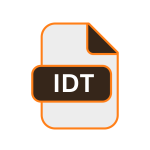.DEC File Extension

Declaration File
| Developer | N/A |
| Popularity | |
| Category | Developer Files |
| Format | .DEC |
| Cross Platform | Update Soon |
What is an DEC file?
‘.DEC’ file is a type of declaration file used primarily in software development contexts.
It serves as a supplement to the primary codebase, providing essential information about the structure, types, and interfaces of the associated code.
Essentially, a ‘.DEC’ file acts as a map or guide for developers, aiding in the integration of external code libraries or modules into their projects.
More Information.
The history of ‘.DEC’ files is closely intertwined with the evolution of programming languages and software development practices.
Initially, declaration files were commonly used in statically typed languages like C and C++, where compiling code without explicit type information could lead to errors or inefficiencies.
Over time, as dynamic languages such as JavaScript gained popularity, the need for declaration files persisted.
In the JavaScript ecosystem, where type inference is common, declaration files serve as a means to provide type information for libraries written in languages like TypeScript, enabling better tooling support and error checking.
Origin Of This File.
The concept of declaration files traces back to the early days of programming languages. As software systems grew more complex, developers encountered challenges in managing dependencies and integrating external code seamlessly.
To address this, declaration files emerged as a standardized way to document the interfaces and types of external modules or libraries.
File Structure Technical Specification.
The structure of a ‘.DEC’ file typically follows a standardized format dictated by the language or tooling ecosystem it belongs to. While specifics may vary, a typical declaration file includes declarations for functions, classes, interfaces, enums, and other relevant constructs.
In languages like TypeScript, declaration files (*.d.ts) adhere to a strict syntax defined by the TypeScript compiler.
They use TypeScript syntax to describe the types and interfaces present in the associated JavaScript codebase, facilitating seamless integration with TypeScript projects.
For languages like C and C++, declaration files (*.h) follow a different convention. They often consist of function prototypes, type definitions, and preprocessor directives necessary for interfacing with the corresponding C/C++ codebase.
How to Convert the File?
Converting .DEC files into other formats or vice versa typically involve manual or automated processes tailored to the specific requirements of the target environment. Common conversion scenarios include:
- Generating Documentation: Tools such as documentation generators or parsers can extract information from .DEC files to generate API documentation in formats like HTML, Markdown, or PDF.
- Exporting to Alternate Formats: Depending on the development ecosystem, utilities or scripts may facilitate the conversion of .DEC files to formats compatible with different programming languages or IDEs.
- Integration with Build Systems: Build automation tools like Make, CMake, or Gradle can incorporate .DEC files into the compilation workflow, translating declarations into platform-specific object code or binary formats.
Advantages And Disadvantages.
Advantages:
- Improved Developer Experience: Declaration files enhance developer productivity by providing comprehensive documentation and type information for external code dependencies.
- Type Safety: In languages like TypeScript, declaration files enable type checking and static analysis, reducing the likelihood of runtime errors.
- Interoperability: ‘.DEC’ files facilitate interoperability between different programming languages and ecosystems, allowing developers to leverage existing libraries seamlessly.
Disadvantages:
- Maintenance Overhead: Managing declaration files alongside the codebase can introduce additional maintenance overhead, especially in rapidly evolving projects.
- Complexity: Understanding and writing declaration files may require additional knowledge of the underlying language and tooling ecosystem, potentially steepening the learning curve for newcomers.
- Compatibility Issues: In some cases, discrepancies between declaration files and the corresponding codebase can lead to compatibility issues or runtime errors.
How to Open DEC?
Open In Windows
- Developers on Windows platforms can utilize integrated development environments (IDEs) such as Visual Studio, Visual Studio Code, or Notepad++ to open and edit .DEC files.
Open In Linux
- On Linux distributions, developers can rely on IDEs like Eclipse, Emacs, or Vim, as well as terminal-based text editors like Nano or Vi, to work with .DEC files effectively.
Open In MAC
- For MacOS users, popular IDEs like Xcode or JetBrains IntelliJ IDEA, along with text editors like Atom or Sublime Text, offer support for .DEC files.













